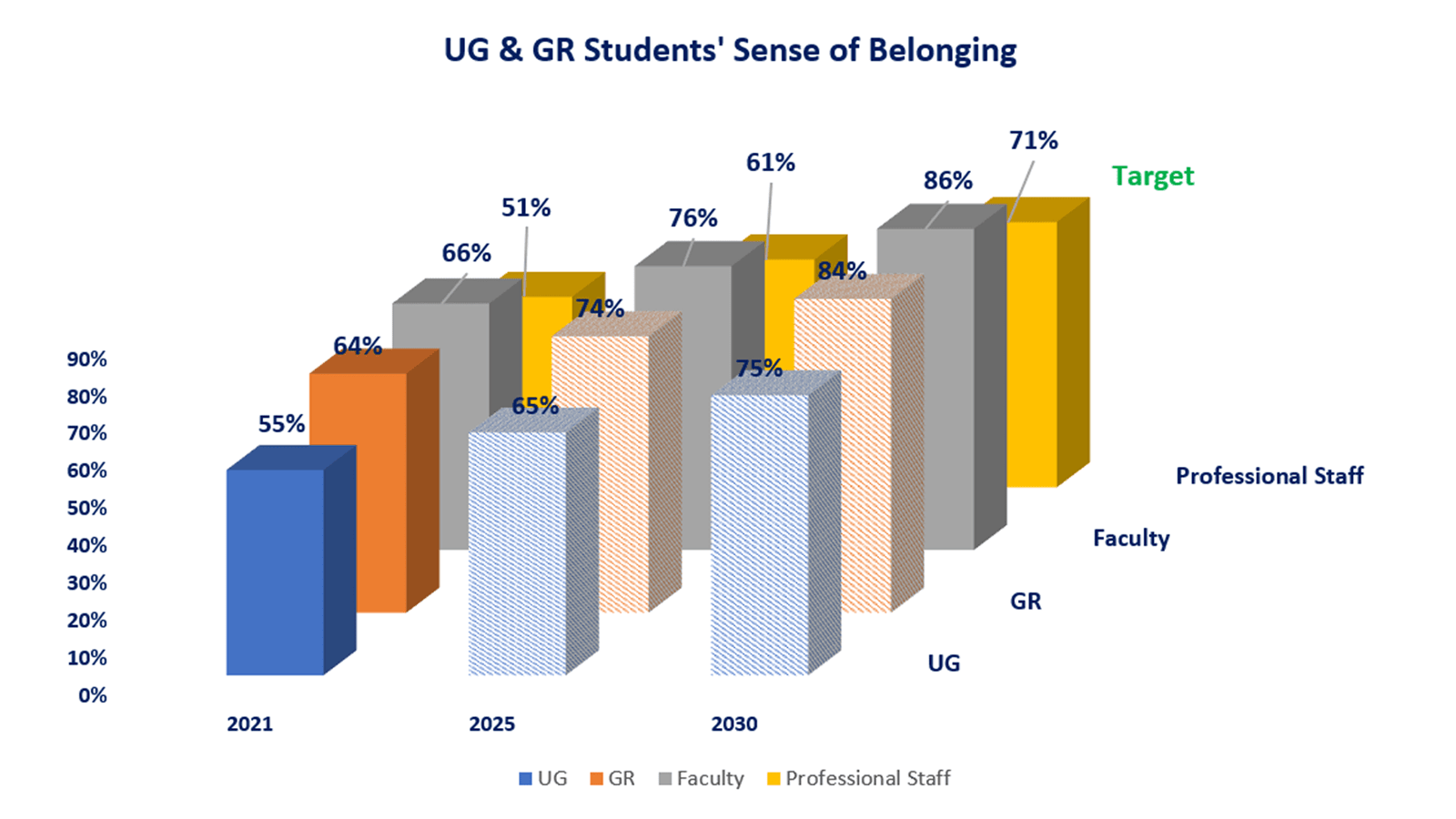Culture of Equity
Foster & Strengthen an Inclusive & Equity Driven Culture
Establish a diverse, inclusive and antiracist learning community that provides equitable opportunities for excellence and achievement for all faculty, students, professional staff, and partners.
Goal: Increase sense of belonging by 20% points across all populations

Level of satisfaction with the extent to which undergraduate students, graduate students, faculty, and professional staff experience a sense of belonging* at Drexel University 2021 Climate survey.
Results from Drexel University’s 2021 climate survey showed that 58 percent of all respondents (n=1,810) were either generally satisfied or very satisfied with their sense of belonging or community on campus. When examined by group, 55 percent of undergraduate students, 64 percent of graduate students, 66 percent of faculty, and 51 percent of professional staff were either generally satisfied or very satisfied with their sense of belonging.
The goal of the Culture of Equity Imperative is to increase the percent of respondents who report being generally satisfied or very satisfied with their sense of belonging by 20 points to 75 percent for undergraduate students, 84 percent for graduate students, 86 percent for faculty, and 71 percent for professional staff.
*Question: Please indicate your level of satisfaction with the extent to which you experience a sense of belonging or community at Drexel.
Response options: 1) very satisfied, 2) generally satisfied, 3) neither satisfied nor dissatisfied, 4) generally dissatisfied, 5) very dissatisfied.


